Do you need to regularly cleanse your colon to keep your body healthy, or is washing out all your gut bacteria doing more harm than good?
While colon cleansing might seem like a relatively new trend that has sprung up in recent years, it’s actually an ancient practice dating back to as early as 1500 B.C. (1)
Regardless of how old the practice is, there is still a lot of controversy surrounding the idea of colon cleansing. How does it work, and is it necessary for gut health?
Do you struggle with bloating, gas, constipation, or other digestive issues? We’ve created a FREE guide to healing your gut naturally.
Click here to get your FREE copy of our Digestion Guide!
Read on to discover the surprising benefits of colon cleansing and the different methods of performing it.
What Is a Colon Cleanse?
Colon cleansing, or colon hydrotherapy, is the use of water or other “flushing” substances to remove waste and stool that may be stuck along the interior of your colon.
The goal of a colon cleanse is similar to washing or cleansing any other part of your body, which is to help it function more optimally by removing any sort of build-up or gunk. Think of it this way: you regularly wash your face to keep your skin clear and remove dirt from your pores. Otherwise, you may experience breakouts or other skin issues.
This is the same reason you might consider “cleansing” your colon, so you can avoid potential problems that may pop up if it’s also, ahem, clogged. And while everyone doesn’t necessarily need to do a colon cleanse, many people can benefit from the help of a colon cleanse to remove toxic waste and bacteria from their system.
Types of Colon Cleansing
There are several different variations when it comes to colon cleansing. The main thing you need to know is that colon cleanses come in two major categories: those you can do yourself, and those that are done by a professional.
Enemas
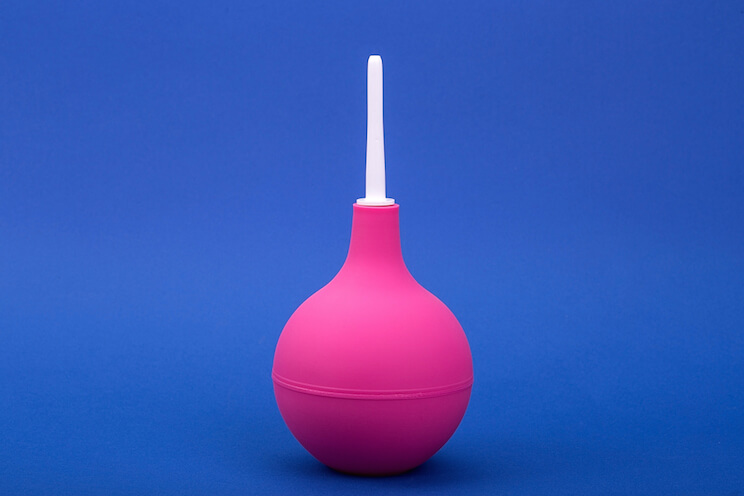
Enemas are inexpensive kits that can be purchased at your local drug store and performed at home. They are milder than a procedure performed in a doctor’s office, but are effective for the lower parts of the colon.
To use an enema, you simply lie down, insert the pointed tip into your anus and let warm water flow into your colon. Wait until you have the urge to use the bathroom. From there, it’s a fairly straightforward process, as your colon is emptied over the next one to two hours.
Colonics

Colonics (also referred to as colon hydrotherapy) are performed by a professional and can take roughly one or two hours to complete. This type of colon cleansing uses high quality water (and lots of it) to flush the entire colon. Typically this is done using gravity or a pressurized machine to flood the colon with water multiple times in order to rinse away compacted matter.
Colonics are thought to be the best way to cleanse the colon, since you’re flushing the entire system and even getting your abdomen massaged to further break up stuck-on material. During the procedure, a physician will insert a small lubricated speculum into your colon that is attached to tubes controlling water flow. At this point, the physician will likely leave the room as your colon is flushed (you will be very comfortable and can even watch the process through the tubes).
Usually each colonic session can cost $50 or more, so getting several colonics can be pricey. Every individual is different, so you may not know how many colonics you need until you get started.
Herbal Colon Cleansing
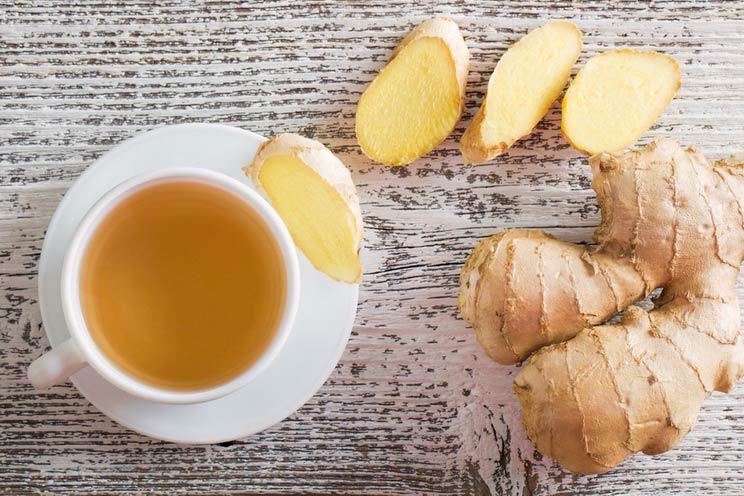
Another way to cleanse the colon is to consume herbal laxatives and fiber to stimulate bowel movements and “sweep away” impacted matter. Some popular herbal colon cleanses may contain herbs like aloe vera, ginger, fenugreek, apple pectin, and licorice.
Using gentle herbal laxatives is an easy way to help heal a bout of constipation and get things moving again. However, they generally aren’t as effective as a full-on colonic since it simply stimulates bowel movements, rather than adding water to “rinse” your colon.
Pros and Cons of Colon Cleansing
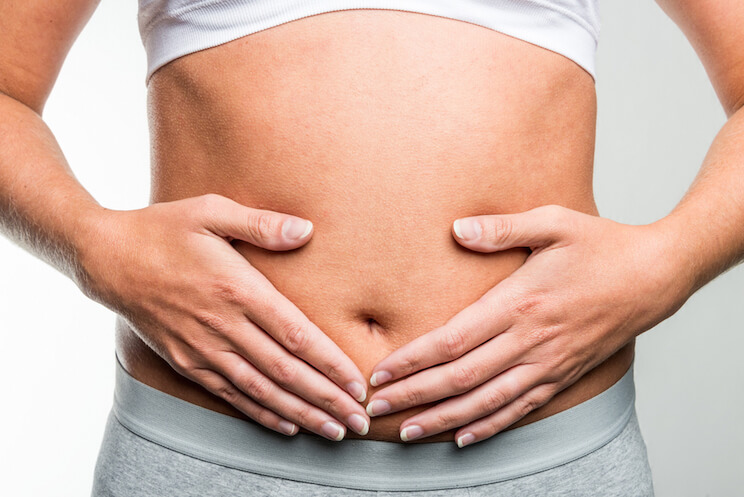
As with any procedure, there may be cons involved. Let’s take a look at the benefits versus the downsides of colon cleansing below.
Pros of Colon Cleansing
While there have only been a few small studies done on the benefits of colon cleansing, many natural health practitioners and individuals who have done colon cleanses say that benefits include:
- Detoxes the body by moving fecal matter and waste through your system faster
- Eliminates excess toxins that can damage your body (such as heavy metals)
- Improves digestion (2)
- Removes bad bacteria in your colon
One study showed that colonic irrigation was also able to help patients with irritable bowel syndrome improve symptoms such as abdominal pain, constipation, and diarrhea. (3)
In addition, colon cleansing can potentially help improve your mood. This is because your colon contains an abundance of neurotransmitters connecting directly to your nervous system, which sends signals to your brain. (4) Studies show that your gut and gut microbes play a huge role in behavior and vice-versa, so anything (including backed-up waste) getting in the way of your gut neurotransmitter signals could potentially lead to mood troubles. (5)
Cons of Colon Cleansing
Potential dangers and side effects of colon cleansing include:
- Dehydration
- Electrolyte imbalance from flushing so much water through your system
- Infection (possibly from unclean tools or home kits not being properly cleaned)
- Diarrhea
- Cramping
- Nausea
Is Colon Cleansing Necessary?
Colon cleansing isn’t technically necessary for anyone; however, it can be extremely beneficial for people dealing with digestive issues. This is especially true if the problem is recurring and you’ve never even done a gentle herbal cleanse.
Is Colon Cleansing Safe?
Colon cleansing is generally safe, but keep in mind that you are essentially intervening in your body’s normal way of running things by inserting water into your colon. Any time we place something in our bodies manually, there is a slight risk of an adverse effect.
Some of the main concerns you need to keep in mind when doing any type of colon cleanse is electrolytes. Make sure you’re eating enough electrolyte foods, such as coconut water, sweet potatoes, avocados, and leafy greens, so your levels are optimal to begin with.
In addition, it’s crucial that the equipment you use is sanitary, whether you’re doing an enema or having a colonic done with a professional.
Regardless of what type of colon cleansing you’re doing, be sure to avoid overdoing it. Talk with your doctor first to help guide you in the right direction. Also, be sure to monitor how you’re feeling during the cleanse, and watch for any dizziness or weakness, which may be signs of dehydration.
Safer Alternatives to Colon Cleansing
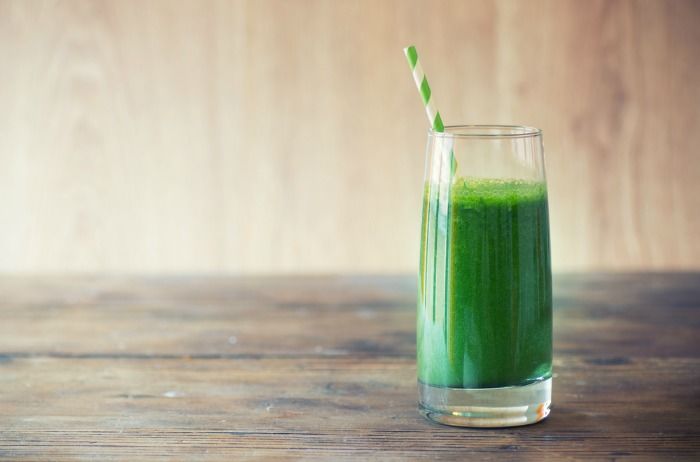
Before jumping straight into colon cleansing, you might want to consider more gentle ways to keep things moving, such as consuming nutrient-rich juices that you press yourself, like celery juice filled with roots and herbs like ginger and peppermint to stimulate digestion. You can also blend them into a smoothie if you don’t have a juicer. Be sure to stay away from processed and fruit juices, as these tend to be high in sugar.
You also want to make sure that you’re eating plenty of probiotic-rich foods like sauerkraut, kimchi, and non-dairy yogurt regularly to support bowel movements and healthy gut bacteria levels. Couple this with fiber-rich foods like broccoli, sweet potatoes, leafy greens, and cabbage to help move waste through your colon to keep it clean.
Finally, try drinking teas that promote healthy digestion, such as peppermint, fennel, or ginger tea. (6)
The Bottom Line
Determining whether to have a colon cleanse is a purely personal decision that depends on a variety of factors. Your best bet is to talk to your doctor to see which option is best for you. Many people swear by the benefits cleansing your colon can bring, so it definitely can’t hurt to consider it as an option, especially if simply eating healthily isn’t working as well as it should.
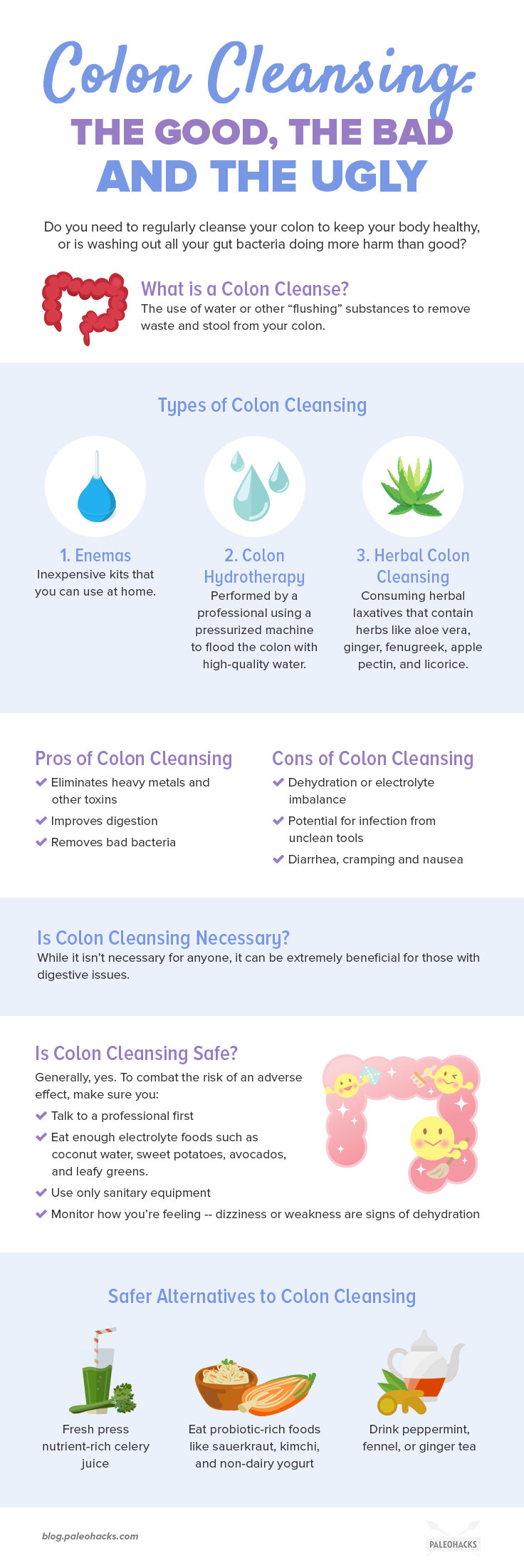
(Read This Next: Natural Laxatives to Relieve Bloating and Constipation)


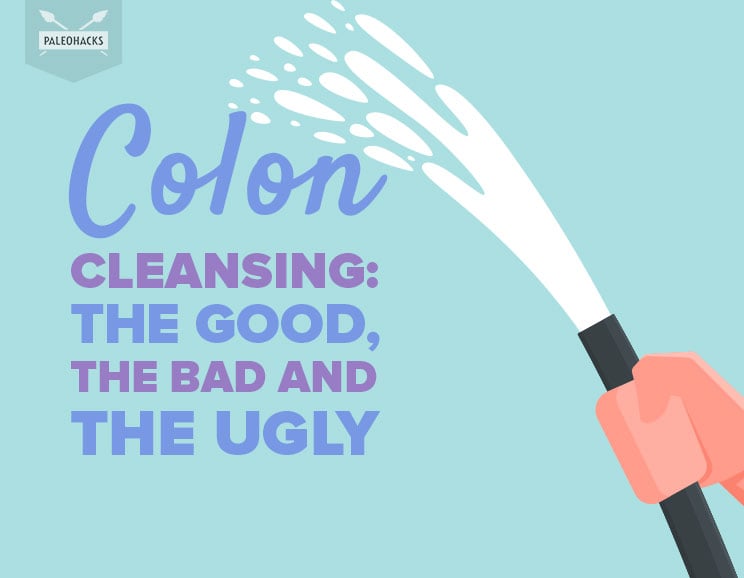
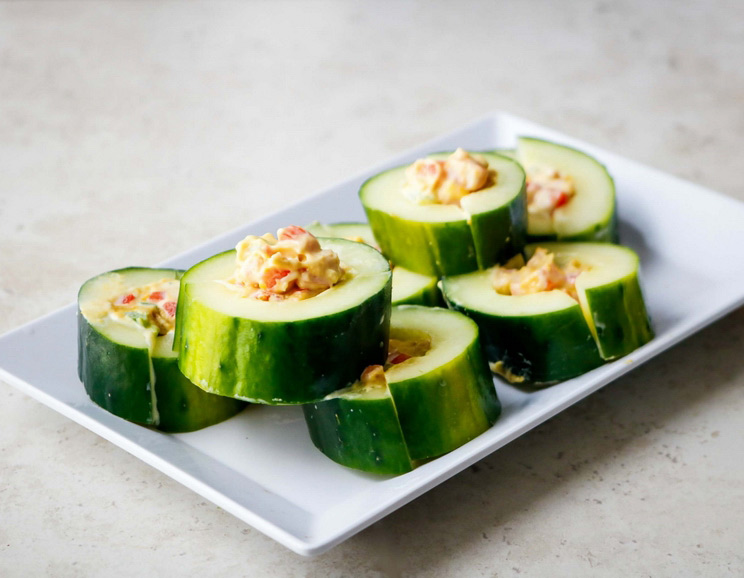 Stuffed Keto Cucumber Bites
Stuffed Keto Cucumber Bites

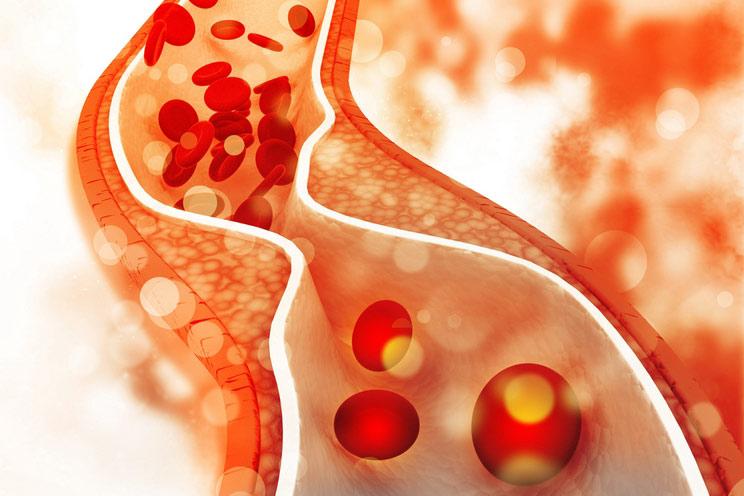


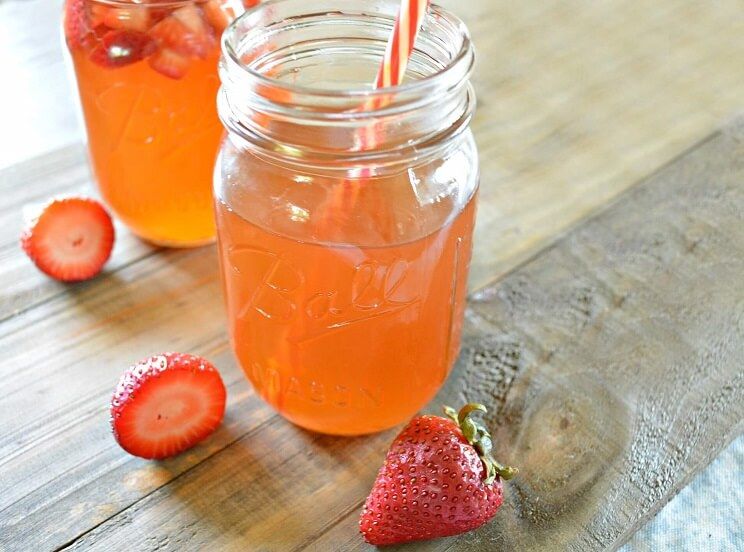
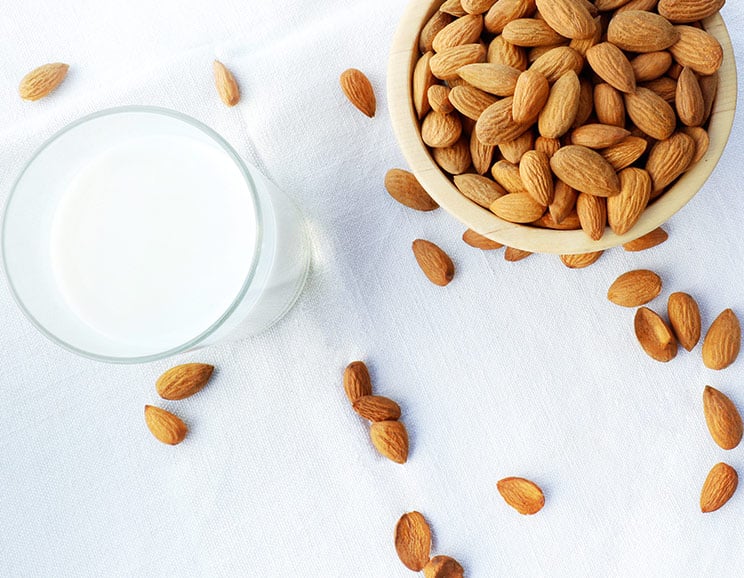
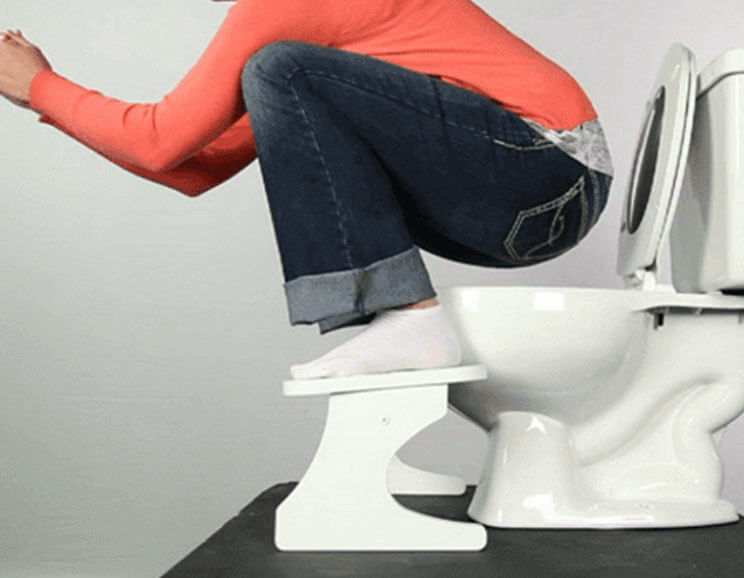
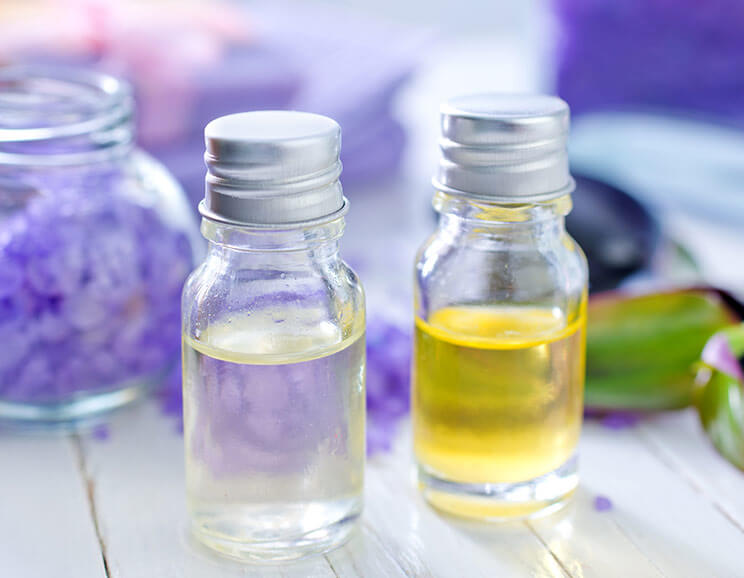
Show Comments